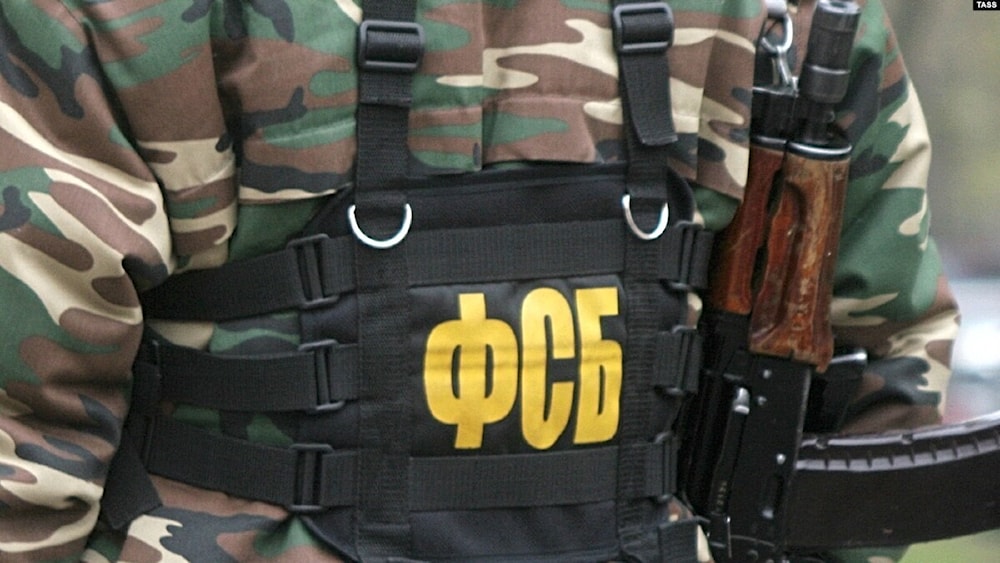Russia foils explosives smuggling scheme coming from Ukraine
The FSB has discovered an explosives shipment, disguised as Orthodox icons, in a cross-border smuggling attempt.
-

An agent of the Russian Federal Security Service (FSB) in an undated image. (TASS)
The Russian Federal Security Service (FSB) revealed on Tuesday the interception of a smuggling plot of explosives from Ukraine through NATO and EU member states.
In more detail, the FSB had been carrying inspections at the crossing between Russia and Latvia, when bomb materials were discovered in a shipment disguised as Orthodox and church icons. The cargo included four improvised explosive devices, 10 kilograms of high-yield industrial plastic explosives, 91 electronic detonators, and parts of an RPG-7 charge.
The supply chain route originated in Ukraine and traversed through six EU and NATO member countries; Romania, Hungary, Slovakia, Poland, Lithuania, and Latvia.
After the bombs arrived at the Russian border and were discovered, a criminal investigation was launched, resulting in the detainment of an anonymous suspect by the FSB.
High alert against terrorist attacks
On March 30, Russian officials arrested three people plotting an attack in the country's south. The FSB security agency said it had "put an end to the terrorist activities of three nationals from a Central Asian country", Russian news agencies reported.
The three had been "planning to commit a terrorist act by blowing up a device in a public place in the Stavropol region", it added.
The RIA Novosti news agency said the ingredients for an improvised explosive device (IED) and chemical substances had been found at the home of one of the suspects.
The announcement came a week after the massacre at the Crocus City concert hall on the outskirts of Moscow, which claimed at least 144 lives.
A week on, the Kremlin has acknowledged that "radical Islamists" carried out the carnage, arresting 12 people including the four attackers from Tajikistan. However, it still directed much of its anger at Ukraine, insisting that Kiev was involved in the attack.
The Islamic State (IS) terrorist group has repeatedly claimed responsibility for the attack, its deadliest on European soil.
But Russia's Investigative Committee has said it has evidence that "Ukrainian nationalists" were behind the attack and had funded the gunmen with cryptocurrency payments from Ukraine.
Read more: US recruiting terrorists to attack Russia, CIS countries: Russia intel

 2 Min Read
2 Min Read









